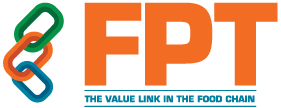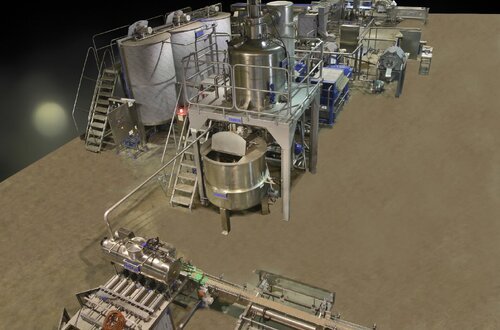Dates Syrup Production Line
The fruit is blended with water and boiled for roughly 1 hour at 70°C in the Dates syrup production line business, where the major components, sugars, are extracted. Dates syrup is a common by-product of the dating industry and is used in foods such as jams, marmalades, concentrated drinks, chocolates, ice cream, confectioneries, honey, and so on. Because the Kabkab dates contain a significant amount of waste, they may be utilized to make date syrup at a lower cost. The most frequently derived date product is date syrup (dibs).
When bagged humid dates are stacked for many months, certain syrups are extracted by the force of their weight, resulting in this by-product. Furthermore, it is made at home and in the village by extracting and boiling down juice, as well as on a semi- and full-scale industrial scale. Because the Resize date has a high waste content, it may be utilised in a dates syrup production line for a low cost. This process removes certain nutritious components while also darkening the colour of the food.
To maximise the extraction of any particular fruit juice in terms of production and quality, certain enzymes and enzyme combinations are needed. Cellulases and pectinases, which are used to treat fruit mashes, have become an important feature of current fruit processing technology since they not only make pressing easier and boost juice recovery but also assure the greatest possible product quality.
Pectinases, for example, may hydrolyze pectin and induce pectin-protein complexes to flocculate, resulting in a juice with significantly less pectin and viscosity, which is beneficial for filtering. These enzymes not only aid in the softening of plant tissue, but they also cause the release of cell contents, which may be recovered with a high yield.
Dates Syrup is one of the most innovative by-products of the Dates Syrup Production Line. Dates have been discovered to be high in nutrients and minerals. It's a rich source of fibre and may be used as a honey or sweetness alternative. It's also high in anti-bacterial compounds. Dates syrup is a concentrated and liquid form of date sugar, a natural sweetener derived from dates.
Dates syrup must meet a minimum criterion of 70 0. Brix has a pH range of 4.2-6. Dates are abundant in sugars, mostly fructose and glucose. Low in fat and protein, yet abundant in glucose and antioxidants. A date is also a nice option. Potassium, phosphorus, magnesium, sodium, iron, and other minerals can be found in abundance. As well as calcium Dates syrup has a thick liquid consistency and a brownish tint.
It's possible. Sucrose, malt syrup, molasses, glucose syrup, inverted sugar, and high fructose corn syrup can all be substituted. As a sweetening agent with a distinct flavour, fructose syrup and all kinds of crystalline sugars are used in date fruit that has reached maturity.
Direct heating, indirect heating, and freeze-drying procedures were researched and compared to enhance the date syrup production line. Total soluble solid (TSS), pH, percent total solid, colour, and percent yield were all assessed to investigate the physiochemical and sensory aspects of created date syrup. Because the fresh date juice was directly heated, the direct heating procedure took less time, but the indirect heating technique employed a double jacket that was attached to hot water and took twice as long to heat.
The syrup generated by the indirect heating procedure has the largest percentage of the most similar ingredients. The impact of date varieties (Deglet Nour, Khalas, and Mazafati) on the manufacture of date syrup was investigated. As a consequence, Khalas generated the largest overall yield but had a deeper brown hue, whereas Deglet Nour had a lighter colour but formed a cluster.
To extract and concentrate the date syrup in the dates syrup production line many processes have been utilised. Saidy variety minced date flesh was extracted twice with a water rate of 1:2 at 70 °C for 30 minutes using a microwave, rotary evaporator, and water bath, and then concentrated in a rotary evaporator and microwave.
According to the results, using the microwave technique for date syrup extraction and concentration resulted in greater moisture, protein, total sugars, dietary fibre, total phenolics, hydroxymethylfurfural, and ash content, but no significant difference in insoluble solids or fat content. The chemical properties and microbiological tests are associated with the organoleptic assessment of body and biodegrade made with dibs.
Dates syrup production Line process
In Dates syrup production line Dates were pitted, crushed, and cut into small pieces with a sharp knife, then dry mixed for 3 minutes with a blender, then extracted twice using 1:2 flesh powder water rate at 70 °C for 30 minutes with a microwave and rotary evaporator.
The date flesh powder sample was cooked in 1: a 2 flesh powder water rate at 70 °C for 30 minutes and mixed in the water bath technique. The raw syrups from each procedure were collected individually, centrifuged at 4000 rpm for 15 minutes, filtered through a Whatman No. 41 filter paper separated in two flashes, and concentrated to around 72 Brix in a rotary evaporator under vacuum at 70 °C and a microwave.
Date fruits are extracted with hot water at temperatures more than 70°C for roughly 1 hour in the dates syrup production line. These circumstances, however, are insufficient for extracting a larger volume of liquid sugar (date syrup).
Furthermore, prolonged overheating can harm nutritional materials and affect the colour of the product. When compared to the usual heating procedure, pectinase/cellulase and the sonication process were employed to extract the most syrup from a date fruit type. The fruit/water (D/W) ratio, enzyme mixture %, and ultrasonic power were all investigated.
To make superior quality syrup, date fruit extract was filtered using a filter system, resulting in a transparent syrup that was concentrated with a rotary evaporator until roughly 75 percent total soluble solids (TSS). The physicochemical and rheological parameters of the samples obtained throughout the dates syrup production line were assessed.
In contrast to a combination of enzymes and traditional techniques of extraction, the results demonstrated that sonication power at a ratio of 1/3 D/We could lead to a larger recovery of soluble solid RSS) in a shorter time with a superior physicochemical quality of syrup. Data suggested that ultrasonic or enzyme procedures may be used to produce larger amounts of syrup, which would be ideal for use in food product development.
Date Syrup includes vitamins, minerals, antioxidants, and amino acids in the form of a fruit. The method of making, it differs from other sweeteners. It isn't honey, maple syrup, or fruit concentrate, and while being a fruit, it isn't created in the same way. Honey is manufactured by a magnificent fleet of celestial winged creatures while maple sap is given to us by wise old trees and cooked down into syrup. A fruit concentration is made by boiling freshly squeezed juice until the majority of the liquid has evaporated. Date syrup, on the other hand, has no actual date juice.
The procedure for Dates syrup production line on a greater scale and in an uncontaminated manner is slightly different. You must add water to filter the nectar from the dates because they contain little to no water activity or juice from the start. In the dates syrup production line Date syrup is created by cooking dates in water, blending the dates, pressing the liquid through a filter to separate away pits and insoluble components of the dates, and then evaporating the water used to make it. All that's left is the nectar, which is rich in vitamins and minerals derived from the date.
Our principal
Kiron Food Processing Technologies, in association with Bigtem, provides a full solution for your Dates syrup production line requirements.
Bigtem, founded in 1973 in Istanbul, Turkey, is a specialist process engineering, design, and manufacturing firm for food processing equipment. To assure hygiene and durability, Bigtem employs cutting-edge materials. Bigtem can offer you the perfect machine for the task, whether you need a basic conveyor or high-tech automated equipment. Our vast inventory of in-stock replacement parts guarantees that your equipment is back in service as soon as feasible.







